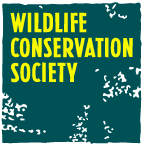
Summary of Workshop Outcomes
The following is a summary of the advice and thoughts offered by participants during breakout sessions and group discussions:
- Education and training are very important for effective community based wildlife and natural resource monitoring, management and protection.
a. When community partnerships are provided with useful information and are taught basic ecology and conservation concepts, they become more interested and active in natural resource conservation and are more likely to effectively manage their natural resources.
b. During past experiences, any training (i.e. for wildlife monitoring, species identification, management plan writing, wildlife protection, pasture management, etc.) has increased interest and motivated communities to take action.
- Exchange between community partnerships is useful (all participants supported the idea of a community exchange program).
a. Horizontal exchange among community partnerships is an effective method of education and information sharing; exchanging lessons learned.
b. Representatives from newly-formed groups should visit experienced/successful groups.
c. Representatives from community partnerships in similar eco-regions should visit each other.
- It is important to monitor the status of wildlife and natural resources in community-managed areas.
a. Volunteer rangers (and soum inspectors and PA rangers) need more training regarding wildlife and natural resource monitoring
b. Natural resource monitoring and management training lead to more active, dedicated volunteer rangers and community partnerships.
- Often community partnerships are only motivated by funding offered by international NGOs and are, therefore, not sustainable.
a. Organizations need to investigate a community’s inherent interest in, and motivation for, natural resource conservation in their community-managed areas, and work only with those groups that are highly self-motivated.
b. Community partnerships need careful direction if they are given funding to ensure that funds are used to fulfill the project goals and objectives.
c. Community partnerships often forget the greater goal of their activities and need to be reminded that their goal is natural resource conservation.
- There is a need to improve or revise the current legislation regarding community partnerships because there are many gaps and ambiguities in the current laws.
a. Local governments often do not understand the law or know about recent additions.
b. Community partnerships are not recognized under the current law on pasture.
- Community partnerships face many problems and threats regarding wildlife and natural resources and need support from international NGOs and government.
a. Local governments need more training about environmental legislation.
- Community partnerships need more incentives (through legislation) to manage and protect the natural resources in their areas.
- It is important to advertise the successes of community partnerships regarding natural resource conservation.
a. Media – newspaper articles, TV shows, newsletters


